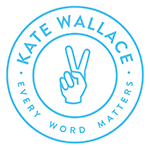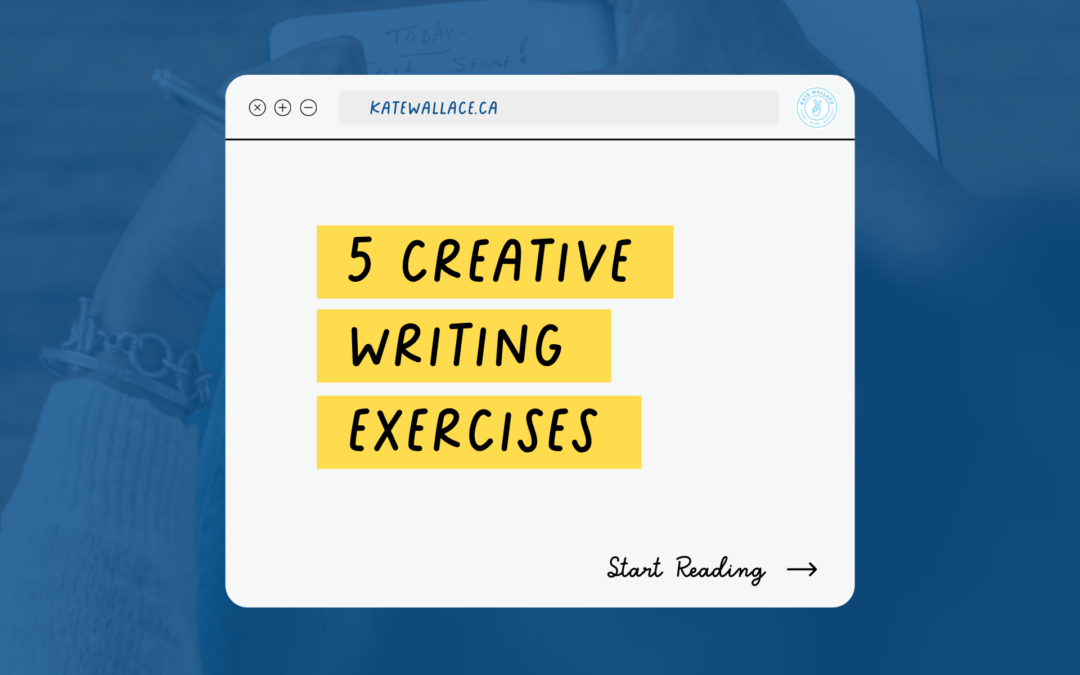I’ve said it before, and I’ll repeat it: Writer’s block is a fiction to cover up what’s usually perfectionism or a lack of preparation. If it’s not either of those, it’s a failure to use your imagination to see the material all around you. Or sometimes, it’s just not having the proper writing exercise to get you started.
I stand by that statement. And yet…
Here I am, the week before a much-needed vacation, looking at my laptop on a Tuesday evening after a long day and feeling very… blank.
Like everyone out there, the grind of the past couple of years has left me feeling a little dazed and drained.
I feel a tiny bit sheepish about my recent hard line on writer’s block. Here I am, drooping over my keyboard, my creative tank practically empty—with a deadline to have this post to my content manager looming before midnight.
The writing’s got to get done. I’ve committed to biweekly blogging. But what’s the fix when you’re supposed to be writing, but all you’re doing is making deals with yourself to get off the hook? Worse, what if you don’t have a team setting deadlines to motivate you?
Well, you write.

Once you get started, it’s much easier to get the writing done. Here are a few simple exercises to get going.
#1 Write a quick story about yourself. 500 words or less.
That’s precisely what I did off the top of this piece. I wrote about not having anything to write about. Meta, eh?
This writing exercise will take the edge off and warm up by restricting yourself to 500 words. Look around you and pick a topic, and you’ll be surprised how quickly 500 words come. And if that seems like a lot, start with 50 and aim for 100.
Think about:
- What was the most exciting part of your day?
- The silliest thing you saw online/in life today?
- What have your pets/kids been up to?
- What’s something that went right/wrong?
Once those words are on the page, turn your attention to what you were aiming to write about. You’ll be surprised how this warmup will help personalize your writing for the day.
#2 Use a Prompt
Sometimes, writers are stumped by not having enough structure or restrictions. If you’re unsure what to write, use this writing exercise to look up writing prompts to challenge yourself.
Things like:
- What’s the best advice you’ve ever had?
- Your weirdest job as a student?
- What conversation changed your path in life?
You get the idea. Remember the 5 Ws – who, what, when, where, why – and describe it. Don’t worry about whipping up a brilliant insight or interpretation. Just build a little scene. It will self-generate a sense of meaning.
#3 Freeform write with a time restriction
In this writing exercise, you’ll need to set yourself a timer. You can decide on 10 minutes, half an hour, or even an hour.
And then just write until your timer goes off.
Don’t set any other goal for yourself other than to write for the time you designated. This might be challenging at first for the same reasons we decide we have writer’s block. But with enough practice, you’ll be able to write on command with this exercise.
Still find no words coming? Doodle.
Get your hand moving on the page. Something happens in that motion that is practically guaranteed to get your mind going, too. There’s a lot of research showing that the particular movement of handwriting, of putting pen to paper, activates areas of the brain related to creativity and more.
The worst thing you can do? Nothing.
#4 Rewrite something in your own words
Imitation is the sincerest form of flattery. What’s something you recently read that you loved, either for content, style or form? Try doing your own version of that.
For instance, I saw a post on Twitter yesterday about how you didn’t have to go to art school to be an artist. Could not agree more. Now, I’m adapting that to my post about how writers don’t have to come from journalism school or have studied creative writing with George Saunders.
There’s no accreditation for writers (although I always did want one of those old-time press cards to tuck into a fedora).
No. Writers write. That’s it. I’m going to write about that.
In this writing exercise, you’ll find something out there that inspires you and then re-write it with your own story or industry in mind.
#5 End a Random Sentence
If you look around your house, you’re bound to find a book somewhere. Grab the nearest book and look at page 7. Now scoot 3 paragraphs down. Got your sentence? Okay, taking just that first sentence, finish it in a new way.
Disregard the topic of the book you got it from. If you’re using this practice, you can end that sentence any way that you want. You can write a completed sentence, or a paragraph, or a whole novel from it if you like.
So long as you get started.
If all else fails, walk it off
Sometimes, if those other exercises fail, you’ve got to step away from the page to have something to bring to it.
If you’re truly stuck, go for a walk. It’s a mini-vacation from your writing that should refresh you in the same way your actual vacation does.
No headphones, no Air Pods. Just lace up, and set out. You don’t have to force yourself to go into a meditative trance or anything, but try to quiet the monkey brain that’s chattering with to-do lists while you walk. Look around, breathe deeply, and give yourself some space to think about your writing from an abstract, far-away mindset.
It sounds too simple, but there’s something about walking’s simple physical rhythm that frees and activates the mind. In a New Yorker piece from 2014, Ferris Jabr tracked the long-acknowledged link between thinking, writing and walking, which goes back at least to the Greeks. He quotes Henry David Thoreau: “How vain it is to sit down to write when you have not stood up to live! Methinks that the moment my legs begin to move, my thoughts begin to flow.”
It’s SO simple. And it works.
Have an exercise you love to use that isn’t listed? Comment below or find me on Instagram to share your favourite way to get your writing going.



